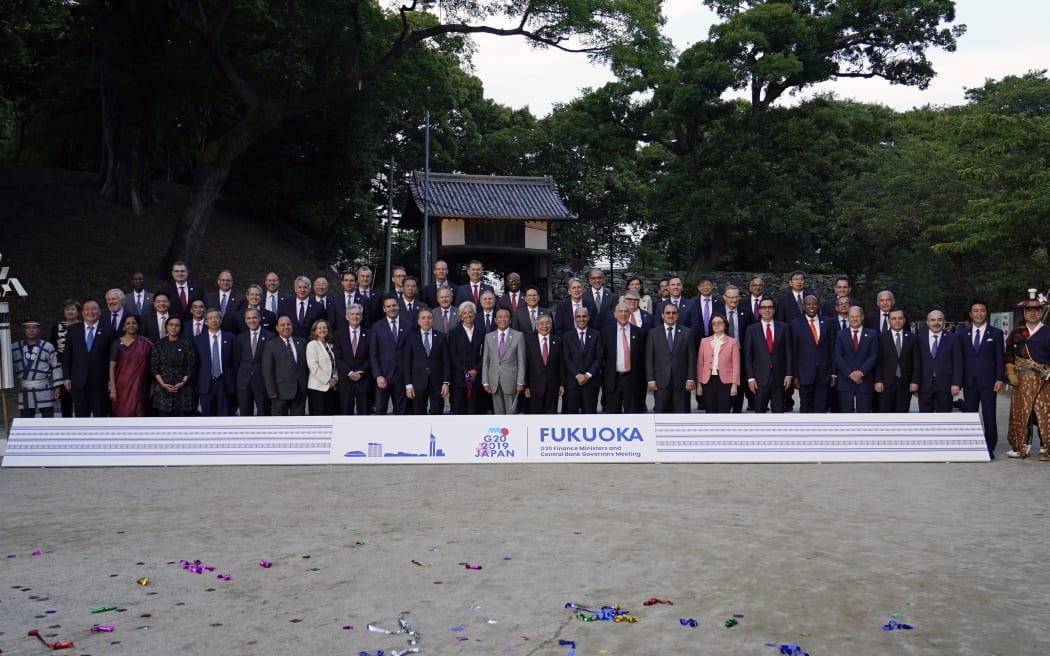Finance Ministers from 20 countries have said they plan to agree a set of rules to close tax loopholes used by global tech giants, echoing recent moves in New Zealand and elsewhere.

Photo: FRANCK ROBICHON / POOL / AFP
The Group of 20 (G20) finance ministers agreed today to compile common rules to close loopholes used by global tech giants such as Facebook to reduce their corporate taxes, a final version of the bloc's communique obtained by Reuters showed.
Facebook, Google, Amazon, and other large technology firms face criticism for cutting their tax bills by booking profits in low-tax countries regardless of the location of the end customer. Such practices are seen by many as unfair.
The announcement came as International Monetary Fund chair Christine Lagarde warned of significant disruption to the world's financial system posed by global tech companies.
The G20's debate on changes to the tax code focused on two pillars that could be a double whammy for some companies.
The first pillar was to divide up the rights to tax a company where its goods or services are sold even if it does not have a physical presence in that country.
The second pillar was to decide on a global minimum tax rate, to prevent companies from finding a way to book profits in low-tax or offshore havens.
The new rules would mean higher tax burdens for large multinational firms but would also make it harder for countries like Ireland to attract foreign direct investment with the promise of ultra-low corporate tax rates.
"We welcome the recent progress on addressing the tax challenges arising from digitization and endorse the ambitious program that consists of a two-pillar approach," the final version of the communique showed on Sunday.
"We will redouble our efforts for a consensus-based solution with a final report by 2020."
Britain and France have been among the most vocal proponents of proposals to tax big tech companies that focus on making it more difficult to shift profits to low-tax jurisdictions and to introduce a minimum corporate tax.
The stance set the two countries at odds with the United States, which has expressed concern that US companies were being unfairly targeted in a broad push to update the global corporate tax code.
These large multinational companies say they follow tax rules but pay little tax in Europe, typically by channelling sales via countries such as Ireland and Luxembourg, which have light-touch tax regimes.
New Zealand's government recently began seeking consultation on its own plan to tax multinationals, putting out a discussion document on several options for doing so.
Moving to a tax regime for these internet-based companies without a more global consensus could be risky for a small, trade-reliant country like New Zealand and some had feared it could prompt retaliation.
The OECD is also considering two solutions.
Earlier this year, countries and territories agreed a roadmap aimed at overhauling international tax rules that have been overtaken by the development of digital commerce.
The meeting in Fukuoka, Japan, today and yesterday is part of a series of meetings across the country this year by the 20 countries' leadership. The summit of G20 leaders is set for 28 and 29 June in Osaka.
- Reuters / RNZ






